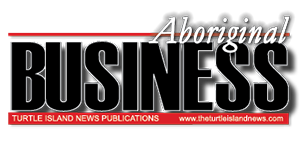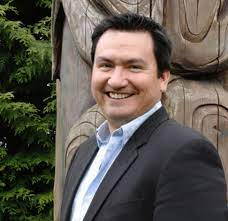By Charlie Carey
Local Journalism Initiative Reporter
For the first time in the Indigenous Partnership Success Showcase’s history, an Indigenous person will be chairing the summit.
Former S?wx?wu7mesh ?xwumixw (Squamish Nation) councillor and Hereditary Chief Ian Campbell will lead the annual conference which focuses on economic reconciliation. The conference will be held at the Fairmont Pacific Rim Hotel on May 26 and 27.
In a statement, Campbell said the two-day event provides an authentic platform for reconciliation.
“It is an opportunity to advance Indigenous partnerships within corporate Canada, and it provides an amazing venue to showcase to broad audiences the progress that has already been made.”
Speaking with the North Shore News, Campbell said economic reconciliation is the opportunity to correct injustices that were imposed through colonialization.
“With the erasure, marginalization, legislative oppression, that has really prohibited Indigenous peoples in Canada from fully participating in the economy,” he said. “It’s an opportunity to mature as a society, as we move forward, and recognize the significant contributions that Indigenous people continue to make to the quality of life for Canadians.”
Campbell said Squamish people were involved in the economy in the 1800s, however with the enaction of the Indian Act, they were deemed squatters and moved onto reserves, with no legal recourse.
“We couldn’t go to post-secondary education. Our language and culture were prohibited under Canadian law; residential schools were imposed. So it’s been a real challenge,” he said. “Part of the reconciliation component of that equation is accountability around cultural genocide. So, to move forward and reframe that complex dynamic, and put the lens on economic reconciliation, to me, is the path forward to create mutual benefits and values that benefit all Canadians, which includes Indigenous people.”
Practically, Campbell said that recent decisions of court cases in Canada have reaffirmed that Aboriginal title was not extinguished when British Columbia joined confederation.
“That underlying title really allowed a more fulsome discussion on responsible and sustainable use of our of our lands and resources within our territories. Where we’re not being marginalized, that we’re actually participating as regulators, we’re participating as proponents. We’re mobilizing our citizens to increase the skill sets and capacity within our families,” he said.
“I think it’s also important to remove the ambiguity for Canadians, that this is a collaboration, that it is a coming together of epistemologies, of worldviews, of our thousands of years of knowing our territories and our stewardship, with that of settlers that have come in and created a quality of life for Canadians,” he said. “This really allows us to have that discussion and dialogue.”
Campbell said he is most grateful for the Elders who mentored and guided him. Although most now have passed on, they embedded a deep sense of responsibility within him, and within the continuity of tradition, how to apply “traditional values in a modern context.”
“I’ve seen cultural revitalization with language and culture.
I’ve seen political leadership with the likes of Chief Joe Mathias, here in the Squamish Nation. But I haven’t seen a lot of business leaders,” he said. “So, my upbringing was largely around our traditional knowledge of our language, our protocols, our lands, our history, our mythology, and I used that for 22 years as a negotiator in intergovernmental relations with the Squamish Nation to create space, whether it was forestry, or Woodfibre LNG, or land development, there’s a lot of major projects with volume and magnitudes of benefits.”
However, Campbell noted that he’s always wondered who will pick up the baton, and step in and occupy these fields.
“I really wanted to push business agenda. I then did my MBA at SFU, graduating in 2015, and I found that carrying Western education with that of my traditional upbringing really allowed me to look at what distinguishes Indigenous groups that are successful business, it’s really when business matches their values and principles.”
Campbell said a robust economy existed here pre-contact with European settlers, an economy which included extraction, manufacturing, trade and commerce. Impeded by colonial imposition, Campbell said it’s important to move forward within traditional values.
“ To apply them in a modern context that allows some creative liberty, to then look at how do we utilize the best tools available to us in order to move beyond welfare, wealth creation, wealth management,” he said. “Abject poverty has been one of the symptoms of colonialism, which I think is unacceptable in this modern era, especially when there’s reconciliation, dialogue, and also UNDRIP United Nations Declaration on the Rights of Indigenous Peoples .
So, I think this is a real opportunity to demonstrate what is working across the country with a variety of indigenous groups, partnering with various companies to create success.”
Speaking specifically about the IPSS showcase, Campbell is really excited by the Indigenous leaders and business leaders across the country that he has been able to connect with over the last few months.
“I looked to Chief Terry Paul of Membertou First Nation for example. Their partnership with premium brand Clearwater Seafood, and I get very excited, because a few years ago, we saw the conflict which was taking place on the east coast between commercial fishers and Indigenous fishers,” he said. “Now you have Membertou being the owner of those licences. They’re now inviting the commercial fishers to come in and work with us, and for us, so I think an amazing example of leadership, and creating stability and certainty within regions in Canada that allow the economy to flourish.”
This year’s summit will also include and spotlight Indigenous women leaders, with Haisla Nation’s Crystal Smith in attendance, he said.
“Especially in light of murdered and missing Indigenous women, it’s an opportunity to really change the narrative of who and what we are as Canadians, to then look to our Indigenous women, as well as our youth, as the next cohort, the up and comers.”
More information about this years summit can be found at the Indigenous Partnerships Success Showcase website.
Charlie Carey is the North Shore News’ Indigenous and civic affairs reporter. This reporting beat is made possible by the Local Journalism Initiative.
 Aboriginal Business Magazine Your source for Aboriginal Business News
Aboriginal Business Magazine Your source for Aboriginal Business News



